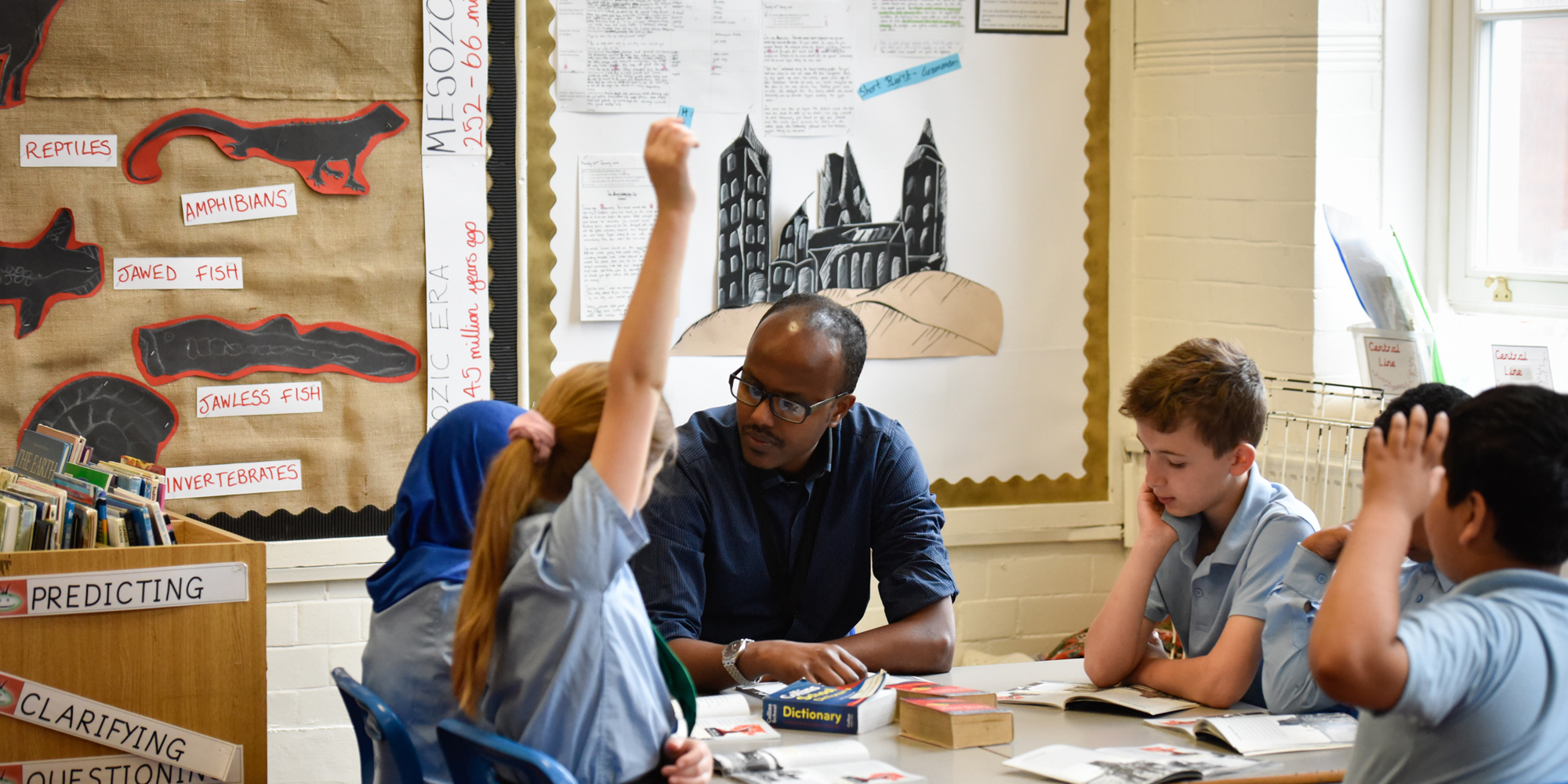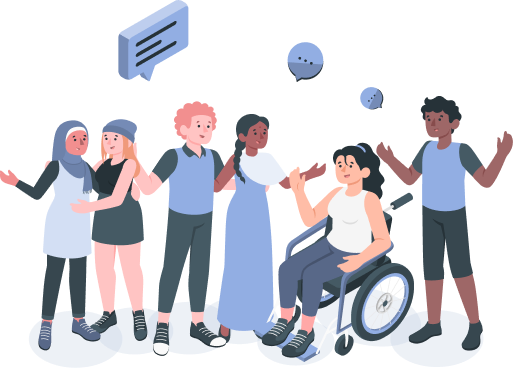
By 2030, we will ensure that all young people leave Camden schools as knowledgeable, intellectually curious and collaborative learners who drive change for social good, with skills and achievements in a broad range of areas, including outstanding academic performance; and, through a relentless focus on inclusion and equity, we will improve the learning and outcomes of children from disadvantaged and vulnerable groups so there is no gap between them and national averages.
There is much to admire about schools in Camden. Ofsted has judged them all to be good or better and their results are above national averages. Nevertheless, as elsewhere in the country, children from poorer families continue to perform less well than those from homes with more obvious advantages.
To narrow the gap, alongside a relentless focus on improving academic performance, we also need a stronger approach to the development of broader skills. Employers prize creativity, originality, team-working, problem-solving and the ability to learn – skills that no machine can replicate. There is growing evidence that it is too often our most disadvantaged young people who do not develop the broader skills that employers need.
We have identified ten priorities for development to progress this ambition. These benefit all children but give disadvantaged children in particular, access to the skills, experiences and networks that they don’t necessarily get at home.
1. A good, local school place available for every Camden child
Raise awareness across the system of the benefits of collaboration for deepening learning and achievement and for economies of scale.
Include a discussion on future planning for collaboration on the agenda of every school’s annual Standards Meeting.
Organise training and scenario-planning workshops for headteachers and governors to develop thinking and planning.
Ensure schools with potential viability issues are supported to produce an action plan, in the context of Camden’s School Places Plan, that considers a range of collaborative arrangements, including federating.
Establish a task group, involving school leaders and parents across both the primary and secondary sectors, to consider ways of increasing the percentage of children transferring to Camden secondary schools at 11
2. Every child a reader by 7
Revisit the evidence both from this country and internationally about effective approaches to the teaching of reading but individual school context is all important, so our detailed focus will be on support for and monitoring of implementation within schools.
Organise a Camden campaign to encourage a love of reading and a community of readers.
Build on success in reading with a major initiative to ensure Camden children can speak and write with clarity and confidence by 11.
3. Knowledgeable and skilled leaders and teachers who love working and learning in Camden
Continue to embed a culture of school-led improvement.
Develop a distinctive and structured Camden offer of high-quality professional learning opportunities bespoke to individual schools and across schools, supporting the delivery of this strategy.
Ensure Camden leaders are well supported and developed.
Support, and initiate, a range of collaborations across schools to develop the quality of teaching and increase its impact on learning.
Make sure that Camden Learning’s work with schools is grounded in research and evidence-informed practice, through close monitoring of the work of the Education Endowment Foundation, partnerships with a research school and with local universities, and through creating opportunities to develop teachers’ confidence in using evidence and research.
Test new approaches to assessment using teacher research to support the Rethinking Assessment movement.
Develop a sustainable model that enables schools to support staff wellbeing.
4. An inclusive, inspiring, creative and horizon-broadening curriculum in all our schools
Give active support to schools in developing an inclusive, inspiring, creative and horizon-broadening curriculum, in line with our definition of the purposes of education.
Share the work underway in some Camden schools who use the UN’s Sustainable Development Goals to inspire others about their potential for transformational change.
Share schools’ practice in tackling climate change to encourage curriculum development and student agency.
Establish an initiative for students to work more creatively beyond their school walls by creating experiential opportunities to learn about the world of work or social action, including volunteering.
Provide opportunities for schools to share and develop their PSHE curriculum ensuring pupils develop the knowledge, skills and attributes they need to manage their lives, now and in the future.
Explore the possibility of a research project on creativity in schools with an academic partner.
5. Harnessing technology to improve learning, schools and our local system
Continue to develop skills, confidence and the possibilities of digital technology as an enabler of learning as well as a tool to reduce staff workload and effect cost savings, through drawing on support from nationally accredited expertise in our schools and the Camden Learning Centre(CLC), as well as the findings from national research.
Reduce the digital divide by focusing resources on those most in need.
Develop Camden’s potential for children learning together across schools, localities and even countries, stimulating interest through Think, Test and Learn initiatives.
Use Camden’s connections with tech industries through the STEAM programme to support learning, develop career opportunities and stimulate innovation.
Use technology to help break down the barriers to learning, through stimulating thinking and action about more imaginative models of inclusion.
6. Successful transition between phases and settings for every child
Ensure Camden Learning’s Recovery and Renewal Plan is responsive and well-targeted to help schools support their pupils’ transition out of the pandemic.
Improve transition into schools, between phases and settings, beginning with a focused and well-researched initiative on primary to secondary.
Improve support for pupils admitted in-year or in-phase using the Think, Test, Learn initiative.
Integrate the Transition to Adulthood initiative into the 16+ curriculum to support students’ health and wellbeing as they transition to further or higher education, training or work.7. Children’s health and well-being are supported through the ethos, curriculum and practices of school life
Build managing health and wellbeing, especially mental health, into education recovery from Covid through joint working across health and education, building on our trauma-informed work.
Continue to provide and further develop mental and healthy lifestyle improvement programmes including targeted interventions, for pupils in most need.
Support teachers with pedagogical strategies to manage pupils’ learning behaviour within the classroom which recognise impact on wellbeing and mental health.
Develop approaches to food in school which link up with boroughwide work on food poverty and health.
Strengthen pupils’ involvement in the development and provision of health and wellbeing approaches and activities in schools and locally.
Develop a wide range of opportunities within and outside of the curriculum that inspire children and young people to be physically active, including promoting active classrooms.
Engage more schools in trauma-informed practice and embed a trauma-informed approach to supporting children and young people’s wellbeing.
Engage more schools in completing a review of their whole school approach to mental health and prioritising identified actions.
Use the pandemic as an opportunity to review the system-wide approach to improving school attendance, linking with the work underway on children’s health, wellbeing and safety. 8. Ambitious, inclusive schools
Recruit and develop headteachers as leaders of social justice using the definition developed in Camden.
Increase the diversity of governors to better reflect the school population through targeted recruitment, training and development.
Extend the work of the Anti-racism Learning Hub to all schools so they can be stimulated to review their curriculum to foster equality, participation and respect.
Establish an initiative to accelerate Black, Asian and minority ethnic teachers’ leadership progression in schools and keep under tight review.
Support schools through Camden Learning to review their PSHE curriculum, particularly as it relates to healthy relationships and sex education, learning from the national response to disclosure on the ‘Everyone’s Invited’ website and addressing issues such as gender-based violence and transitioning.
Produce a research report capturing the work of schools in Camden accredited with the UNICEF Rights-Respecting Schools Award, in particular the impact of this initiative on:
Attainment and attendance Behaviour and well-being Reduction in prejudice and discriminatory attitudes Improved teacher recruitment and retention
Develop a new SEND strategy for 2022-2027 which focuses on:
Making our local provision the right provision in a coherent, connected, consistent system, including increased Additionally Resourced Provision in the secondary phase. Building knowledge, expertise and capacity right across the system to meet increasing need (e.g. autism). Identifying early and acting early to support children and their parents. Developing a revised funding mechanism, putting financial resources where they are most needed in a fair and transparent way and increasing resources in mainstream schools.
Support all children with SEND who have an allocated social worker through the Virtual School to support post-pandemic catch-up.
9. Opportunity Centres to facilitate learning beyond the school day - Establish, in collaboration with schools and using Test and Learn, a network of Opportunity Centres operating at evenings, weekends and holidays to provide:
Access for secondary-age students to learning, targeted at those who most need it but with wide access.
Access to technology, digital and AI learning.
Small group tutoring, especially for those who need it most.
Access to good information, advice and guidance.
Enrichment activities to incentivise attendance and develop personal passions.10. A Camden accountability framework which captures the real story of the school - trial a ‘Camden Record of Achievement’ as a new-style accountability system for schools which:
Recognises the value of the breadth of the education children experience.
Incentivises rather than disincentivises inclusion, recognising schools’ achievements with pupils who do not show up well on exam league tables or who arrive in school late or with a more challenging journey ahead of them.
Recognises success in improving children and young people’s health and wellbeing.
Takes into account the views of young people, parents and teachers.
Understands the importance of young people’s contribution to the community and opportunities to demonstrate leadership.


